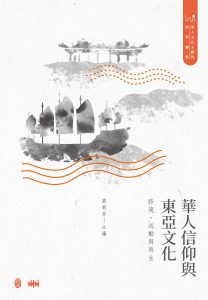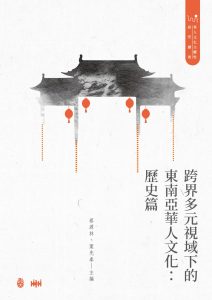由加拿大‧麥吉爾大學‧語言、文學和文化系出版之開放期刊Cultural Analytics,旨在挑戰學科界限,結合人文學科與社會科學和計算科學,致力於文化計算研究。詳情如下:
Cultural Analytics is an open-access journal dedicated to the computational study of culture. Its aim is to promote high quality scholarship that applies computational and quantitative methods to the study of cultural objects (sound, image, text), cultural processes (reading, listening, searching, sorting, hierarchizing) and cultural agents (artists, editors, producers, composers).
Articles are expected to combine theoretical sophistication, computational expertise, and grounding in a particular field towards the crafting of thought-provoking arguments about how culture works at significantly larger scales than traditional research. In combining the very best of the humanities and the social and computational sciences, Cultural Analytics aims to challenge disciplinary boundaries and serve as the foundational publishing venue of a major new intellectual movement.
The journal currently features three sections: Articles profile peer-reviewed scholarship; Data Sets offer lengthy discussions of curatorial choices associated with new data sets relevant to cultural study; and Debates offer shorter more timely interventions into key discussions surrounding the computational analysis of culture.
We also host thematic clusters that can be searched by keyword as well as special issues.
We gratefully acknowledge the support of the Social Sciences and Humanities Research Council of Canada.
Creative Commons License
Unless otherwise specified, authors retain copyright of material published in the journal and grant the journal right of first publication with the work simultaneously licensed under a Creative Commons Attribution 4.0 International License (CCBY).
All articles are long-term archived by Portico.
The journal is published by the Department of Languages, Literatures, and Cultures at McGill University.
ISSN 2371-4549
Citations to the journal should take the following format:
Matthew Wilkens, “Genre, Computation, and the Varieties of Twentieth-Century Fiction.” Journal of Cultural Analytics. November 1, 2016. DOI: 10.22148/16.009. Dataverse DOI: 10.7910/DVN/EXPXYT.
Open Access Policy
This is an open access journal which means that all content is freely available without charge to the user and his/her institution. Users are allowed to read, download, copy, distribute, print, search, or link to the full texts of the articles, or use them for any other lawful purpose, without asking prior permission from the publisher or the author in accordance with the journal’s creative commons licensing policy. This is in accordance with the BOAI definition of open access. There are no author processing charges (APCs) or submission processing charges.
Peer Review Policy
Our peer-review policy combines a mixture of blind review and peer-review endorsement. While the initial assessment of each submission is double blind, we encourage reviewers to attach their names to any pieces they support. Articles will then feature the names of both the author and the reviewer upon publication. Our aim is to make the review process as transparent as possible. Networks of endorsement form a core form of intellectual labor and influence and should be as open as possible to scrutiny. CA pledges to provide peer-reviewed responses to authors within 4-8 weeks. We need to improve the timeliness of how we respond to our community’s work, especially in this new field of work.
Data Sharing Policy
CA is committed to making cultural data as publicly visible and accessible as possible. Shared data helps foster a community of critical analysis and widens the circle of who can participate.
Our journal’s policy is that all data and code relevant to articles published in CA will be made publicly available through the journal’s open-access data archiving service with Dataverse. In addition, researchers are welcome to publish their data in other institutional repositories. This policy includes sharing underlying text, audio, or image files; derived data used in the analysis; and code used to acquire, clean, and analyze collections. Exceptions apply to excessively large files and legal liability related to the sharing of data (i.e. copyright). However, it is expected that the derived data of such restricted or overly large collections will be shared or the code used to collect it so that others may acquire identical data sets. Below we provide a few scenarios for good data sharing practices.
- Researcher A has collected and analyzed 1,000 poems from the Renaissance in several languages. The researcher will submit a directory of the plain text files as well as a table of metadata and the code used in the analysis.
- Researcher B has collected and analyzed 10,000 book reviews from an online newspaper to study gender bias in the review process. The reviews cannot be shared due to concerns over copyright infringement. Instead, the researcher submits a table of article metadata, which includes the date of publication of each article and the reviewers’ and reviewed authors’ predicted gender along with names for verification. Additionally, a derived table of word frequencies of the reviews is supplied. The code used to generate the data set and analyze its linguistic biases is supplied as a separate file.
- Researcher C has collected 1 million photographs from Instagram. The collection is too large to store in a public repository and user-generated content should not be recirculated without permission. So the code used to collect the data is made available as well as a table of the transformed image data used in the analysis. This would contain metadata on the files used for examination, but also the features used in the analysis.
- Researcher D has been supplied a data set through a third party repository, such as Hathi Trust or their own research library. This researcher would supply the table of file IDs so that other researchers could request identical data sets from Hathi or their own university library. As in the other scenarios, Researcher D supplies derived data from the underlying text files, which might include word counts or higher-level features. The code used to analyze the data would be submitted along with the tables as a separate file.
All Right Reserved to the Author and Sources





